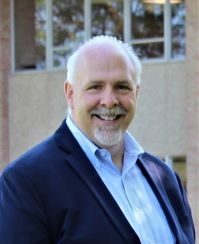
David Malone
Dean of the Library
Hekman Library (Calvin University)
I just finished up Jemar Tisby's "The Color of Compromise," a compelling history of how the American Christian church helped create and maintain racist ideas and practices. This New York Times bestseller should be a part of any introductory US History course.
What are your research interests?
My own research interests are as varied as technology in the library context and the user experience or 19th-century American religion. I have published in biographical and historical encyclopedias, as well as library science and history journals. My most recent publication (2019) was a co-authored article with sociologist Brian Miller, titled “Race, Town, and Gown: a White Christian college and a White suburb address race,” which looked at the City of Wheaton and Wheaton College and how these institutions transitioned from being socially progressive to becoming more conservative.
Do you have hobbies or interests outside of the library?
I enjoy hobbies that are creative in nature. For me, this finds expression in things food-related, from brewing beer or making and canning homemade sauerkraut to sharing large batches of homemade soup with others. I will also take on home-project that often bring accompanying frustration at not having quite the right tools at hand.
What drew you to the library profession?
I was originally on a track to study church history with the thought of becoming an academic. While a research assistant for a history professor I was encouraged to consider academic librarianship. With this advice and a sense of my own interests, I pursued a position in archives and special collections within an academic library. I enjoy learning new things and integrating that knowledge into a larger pool. I enjoy order and outreach and have enjoyed applying technology to both these important tasks of librarianship.
What do you value about MiALA?
I have always valued local and regional professional organizations as they afford one an opportunity for networking and development. As you become involved you build relationships with individuals in similar-sized organizations that you will likely see year after year. This makes one feel a part of the profession.